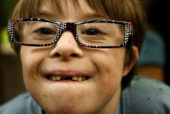Growing up, Melanie Shaw knew her parents expected her to go to college.
“Our family raises us letting us know there’s elementary school, middle school, high school and there’s college,” said Shaw. The child of Belizean and Honduran parents, Shaw is now a CSUN alumni and CSUN Professor in Africana Studies.
According to the National Center for Education Statistics (NCES), 35% of undergraduates were the first in their families to go to college in the 2015–16 academic year. An additional 26% of students had parents with at least some college experience but not a bachelor’s degree.
First-generation students face difficulties other students may not. Some of these scenarios are having access to advising and academic support from their household. Others may not receive advice passed down from their parents that the children of college graduates might expect to receive.
Fresno State University student Cinthya Zavala came to the U.S. with her parents from El Savador when she was 6 years old. Like Shaw’s family, Zavala’s parents also dreamed that their daughter would attend college, but Zavala herself had to figure out how to pull it off.
“Part of the difficulty was just when you come into a country and you don’t speak the language, and you don’t have any family support it’s just growing,” said Zavala. “Understanding that college was an expectation, but I had to accept that I actually wanted to do it.”
Many first-generation college and university students struggle to prepare themselves for the rigors of higher education.
When he went off to college, “I threw myself into a situation I knew was going to be taxing,” said Bryan Abarca, a Los Angeles City College student, “but I felt like I bought into this idea that it’s like this for everybody.”
Abarca is also the first in his family to go to college.
“You grow up in a family that wants you to succeed,” Abarca said, “but doesn’t necessarily offer you that helping hand.”
Feeling ill-prepared was one hurdle, but not having the financial stability was an even bigger barrier to surmount. Kwon-Hyuk “Raphael” Lee, a DACA recipient and first-generation college student originally from South Korea, also battled with this.
While Lee saw his friends flourishing, he didn’t understand why his life had to be more difficult because of his family’s financial status.
“I was having a lot of mental breakdowns because at one point I was so angry because I see a lot of my friends succeeding and doing it,” said Lee. “I know they are sharing all of these accomplishments on their social media but I’m like, ‘Where am I?’”
Zavala, also a DACA recipient, said asking for guidance on applications became a struggle. She recalled a time in high school when she was pulling together financial aid paperwork and asked her school counselors for help.
“I had some questions,” she remembered, “and they were like ‘Oh, you know, we don’t have experience with that, maybe your parents can help you.’ It’s like, my parents have no clue what FAFSA is.”
Even after first-generation students complete higher education, they’re at a disadvantage: they’re less likely to have family contacts that can help them build a career that suits their college degree.
Professor Shaw said networking is a practice that should be viewed as a privilege.
“Even now … I feel that I am playing catch up with everyone in my department, even though it’s the Department of Africana studies,” said Shaw. “I’m in a department with other amazing educated individuals that are of color [and] I still feel that there are more steps that I have to take.”
Like Professor Shaw, Abarca also feels that he has to put in more effort.
“Regardless of what POC group you come from it’s always like five steps up and two steps back,” said Abarca. “You have to work twice as hard to get half the results.”
This show was produced by the following team:
- Emily Brubaker
- Katherine Hernandez
- Mary Paronyan
- Dailyn Simmons
- Diane Zermeño

 Tweet this Video
Tweet this Video Share on Facebook
Share on Facebook Share via E-mail
Share via E-mail

